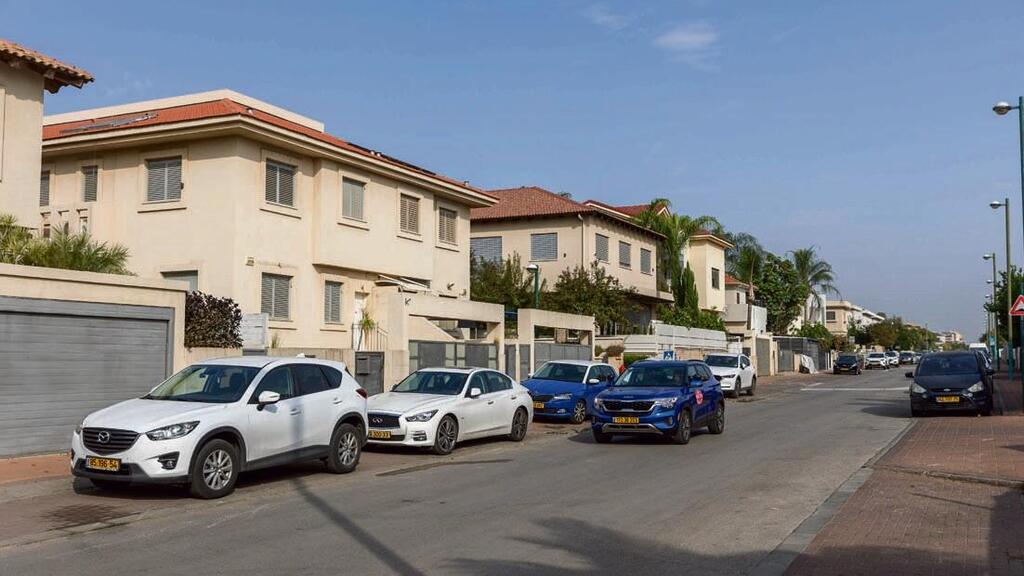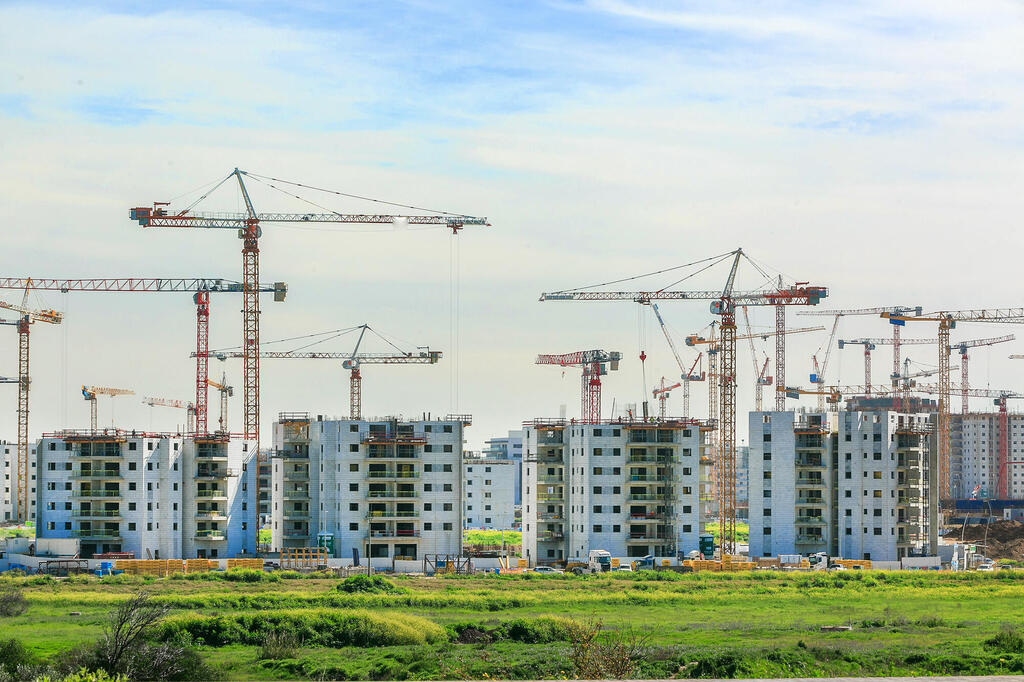Getting your Trinity Audio player ready...
With Israel reaching a record-breaking series of interest rate hikes, the past year in the real estate market saw many twists and turns, both for apartment buyers whose mortgages have become more expensive and for people renting apartments who are forced to pay more.
More stories:
Israel’s Central Bureau of Statistics' (CBS) housing price index, published last weekend, showed a slowdown in rising apartment prices but recorded a surge in rental prices.
8 View gallery
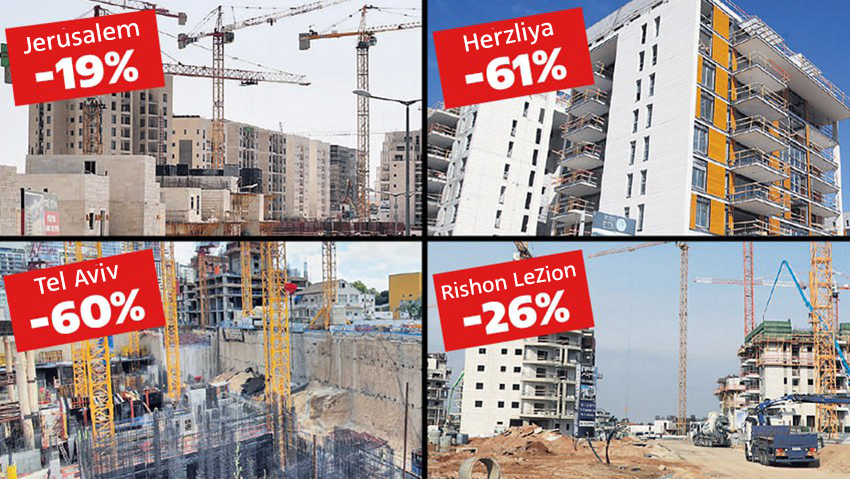

Housing prices tank compared to 2022
(Photo: Amit Shabi, Shaul Golan, Yisrael Yosef, Asaf Friedman, Dana Kopel, Orel Cohen)
Last week, the CBS also published data on the number of new apartments sold in April, revealing a significant decrease in the number of transactions. Only 1,460 new apartments were sold, which is a 50% decrease compared to March and more than 50% less compared to April 2022.
Decline in sales of new and second-hand units
Additional data released by the Finance Ministry's chief economist also showed a negative record, indicating a decline of around 50% in sales transactions of new and second-hand apartments in April year-on-year.
The data reports only about 4,000 transactions, the lowest figure since the early 2000s, except for April 2020 during the coronavirus pandemic. Similarly, the Bank of Israel published mortgage data for the month of May, which also reflected a decline of approximately 46% in total mortgages taken out compared to May 2022.
A survey conducted by the Madlan real estate website for Ynet compared the number of real estate transactions in leading cities in Israel in 2023 compared to 2022.
This comparison is particularly interesting because it examines the period during which interest rates rose, from April 2022 to March of this year, compared to April 2021 to March 2022, a period characterized by low and stable interest rates.
8 View gallery
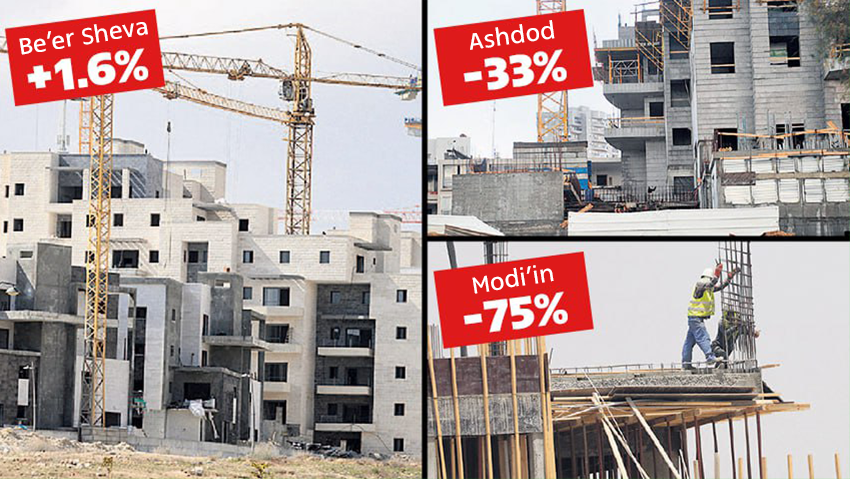

A decrease in the number of transactions in the last year
(Photo: Amit Shabi, Shaul Golan, Yisrael Yosef, Asaf Friedman, Dana Kopel, Orel Cohen)
The city with the most significant decrease in the number of transactions is Modi'in-Maccabim-Re'ut located in central Israel, which saw a 75% decline in apartment purchases.
"The market switched, turning from a sellers' market, into a buyers' market."
There were 2,848 transactions between April 2021 and February 2022, compared to only 713 transactions between April 2022 and February 2023.
Those who know Israel’s real estate market and how it operates are real estate agents. According to Carmit Birnbaum, a real estate agent from Modi'in, "The market switched, turning from a sellers' market, into a buyers' market.”
“If sellers could get whatever they wanted in 2022 because of very high demand, and dozens of bidders fought for each property, with an average selling time of only one week, today the market has shifted completely. Buyers are the ones who dictate how the market works, they feel empowered,” she said.
Birnbaum adds that "there are many buyers who are sitting on the fence, waiting for prices to continue to decrease.”
“We see that investors and young couples have disappeared from the market, and therefore we have a situation where quite a few 3-4 room apartments are up for bids, and their prices are dropping due to higher supply than demand. This represents a very significant decline of between 10% to 15%," she said.
The city of Kfar Saba also experienced a significant decrease of 63% in the number of transactions, which dropped from 1,628 apartments purchased to only 607 apartments during the period studied.
Herzliya saw a decrease of 61% in the number of transactions, and Tel Aviv experienced a decrease of 60%. In Holon, the number of transactions decreased by 55%, with 1,410 compared to 3,138 back in 2022. Ashdod saw a decrease of 33% in real estate transactions.
Shift in the market
Dikla Pur, a real estate agent from Ashdod, notes that "we definitely feel a change following the steps taken by the Bank of Israel. In recent months, since the significant hike in interest rates, there’s been a shift in the market.”
"Today, sellers lower the price, and return prices to their real value in the market. I estimate that in another two years, prices will skyrocket again"
“People hesitate to buy properties and so do investors, who can now put their money in the bank where interest rates currently reach up to 5%. As a result, they refrain from making purchases, and it’s noticeable."
Pur claims that "when interest rates decrease, real estate prices will rise again. Today, sellers lower the price, and return prices to their real value in the market. I estimate that in another two years prices will skyrocket again, so I believe the time to buy a property is now.”
“When taking out a mortgage for a property, it’s paid over many years, and after two years it is possible to refinance the mortgage and reduce the monthly repayment. On the other hand, buyers today can make a good deal at a realistic price," she adds.
Talking to real estate sellers, Pur recommends that they understand the property's actual value, "and not fantasize about an outrageous price."
Ramat Hasharon also experienced a significant decrease of about 46% in the number of property transactions, with 559 apartments purchased in the past year compared to 1,028 in 2022.
Jerusalem saw a 19% decrease in transactions, while Rishon LeZion reported a 26% decrease in the number of apartments purchased since the interest rate hikes year-on-year.
"Last year was crazy, and people rushed to buy everything they could," says Dor Efrayim, a real estate broker from Jerusalem. "Today, people think twice before buying a property.”
"The market is more focused today. When interest rates were low, apartments were sold very quickly, and it seemed that buyers didn't really have the option to hesitate before buying."
“This is normal for the market that we’ve come to know over the past decade. The abnormality was during 2022. The decrease in sales that we’re currently seeing indicates a return to normalcy, before the market peaked last year."
Barak Sasson, a real estate agent from Rishon LeZion, agrees. "The market is more focused today. When interest rates were low, apartments were sold very quickly, and it seemed that buyers didn't really have the option to hesitate before buying.”
“If they didn't buy instantly, the apartment would be quickly sold to someone else. Today, people can see the property, think, perform cost-benefit calculations on the apartment, and choose a truly suitable apartment for them."
The city that's the exception
An exceptional city on the list is Be'er Sheva, which, according to the analysis, experienced an increase in the volume of real estate transactions in the examined periods. According to the data, the southern city saw a 1.6% increase in the number of transactions, with 4,580 apartments purchased today compared to 4,507 in 2022.
According to Shlomi Amar, a real estate broker from Be'er Sheva, "Usually, over 30% of property transactions in Be'er Sheva are done by investors who purchase properties close to Ben-Gurion University.”
"Now is the best time to buy property because of the decline in prices and demand."
“Since the rise in interest rates, we saw fewer deals from investors who prefer to keep their money in the bank, but I estimate they’ll come back to the market. Today, most transactions are carried out by people looking houses to flip, or those who sell and move to a smaller apartment because mortgage rates have dramatically increased, and they cannot afford them," he said.
"Now is the best time to buy property because of the decline in prices and demand. As someone who experienced the market for 14 years, I believe prices will continue to rise in a few more months. Therefore, those who buy now will benefit in the future," according to Amar.
Tal Kopel, Madlan’s CEO, explains that "cities that experienced the largest declines in transactions launched significant marketing campaigns for real estate projects during the same period in 2022.”
Kopel adds: "Prices in these cities, which were previously considered middle class, continued to rise, turning them into upper-middle-class cities or highest. This supports the theory that the current slowdown is happening mainly due to Israel’s middle class, who’s reluctant to take out a mortgage.”
“It seems that today, the main actors in the market are those buying and selling very expensive – or very cheap – apartments. Due to the rise in interest rates and overall prices, it seems that everyone else is hesitant to purchase or sell."
Real tips for real estate
So, what tips do the brokers offer to sellers and buyers during this period? According to Yael Sa'ar, deputy CEO of Anglo Saxon Real Estate in Tel Aviv, "the hike in interest rates has changed things: if sellers used to raise prices during the sales process itself a year ago, the market today belongs to the buyers.”
“One of the main challenges in the market is reaching suitable buyers and conducting negotiations that are beneficial to all parties. People who aren’t skilled in these are advised to seek help from professionals who know how to reach the right target audience and help complete the transaction smoothly," she says.
"Each transaction is unique, and the decision whether to sell or buy at this stage is subjective and needs to be examined on a case-by-case basis. For example, how long can a potential buyer afford to wait before buying a home? How much equity do they have,” Sa'ar adds,
“As for sellers, one of the most influential factors in finding buyers and closing a deal is the pricing of the property. This is a complex issue because each property has different characteristics, and no two properties are identical,” she explains.
"Before July 2022, if you saw an apartment you liked, you had to buy it immediately. Today’s different."
“A property that is underpriced may end up being a loss for the seller, and one which is overpriced may find itself on the market for a long period of time. The best objective of the two sides is to reach an agreement that will serve everybody’s interests,” Sa'ar concludes.
"You can see the apartment you're interested in without pressure because it isn’t likely to be sold soon," Sasson, the real estate agent, says. "Before July 2022, if you saw an apartment you liked, you had to buy it immediately. Today is different."
“I recommend looking for a property whose potential justifies the price. Additionally, remember that even if the mortgage is expensive, it's not a life-long commitment – you can always refinance it and improve its terms, even in a year or two," he adds.
8 View gallery
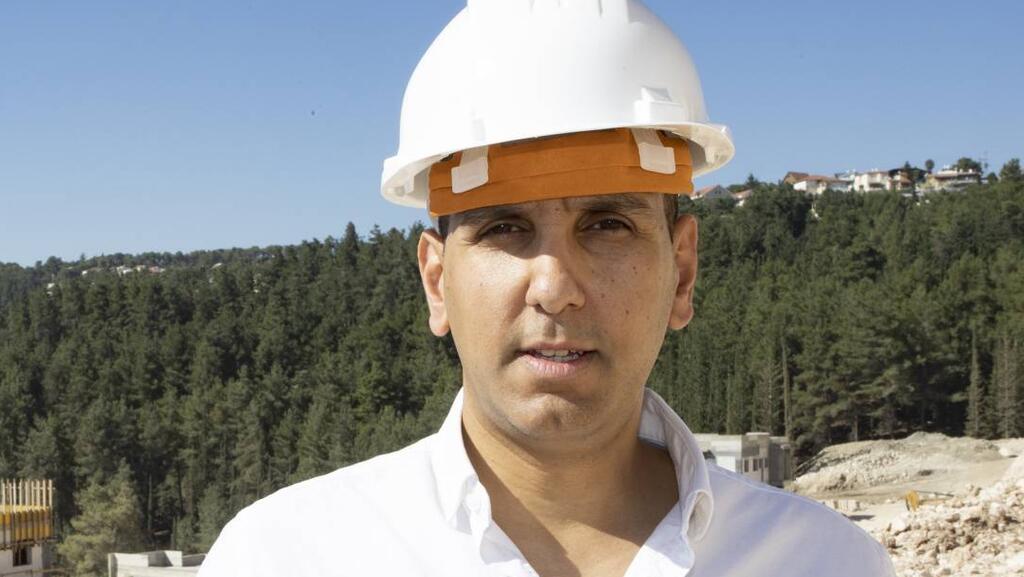

Nir Mesika says investors who rent their apartments want to see a significant return on their investment
(Photo: Gil Nechoshtan)
Nir Mesika, former deputy director-general at the Finance Ministry’s National Housing Authority, explains that the reason for the rise in rental prices in Israel lies in the increase in interest rates by the Bank of Israel and the fact that investors who rent their apartments want to see a significant return on their investment.
“Investors simply increase their prices according to the interest rate hikes. As long as the interest rate and mortgage repayments stay high, I don't see any positive change," he said.
Mesika further clarifies that "we shouldn't be deceived by the slight decline presented in the latest housing price index. The market’s current state is far from satisfactory, and we need to deal with challenges we’ll face in the future starting now."
According to Mesika: "The interest rate is a critical issue. Even if the index continues to show minor price declines in the coming months, the real problem is the market’s current halt, combined with cost increases in financing projects, which pose a tangible threat to contractors in Israel.”
First published: 07:42, 06.21.23


